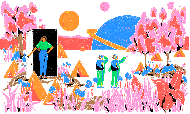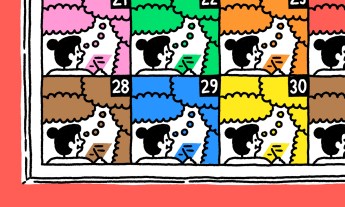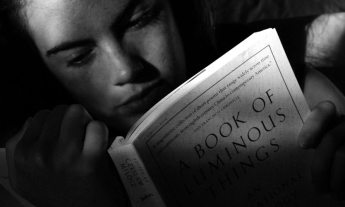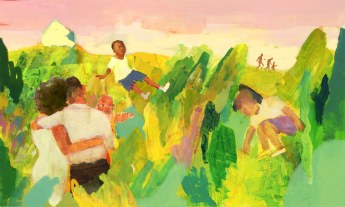
Put your bot-sniffing skills to the test, and see how you do.
How would you feel if you read a poem — and then found out it was written by a computer? Would you be upset? Impressed? Would it make you like the poem less?
In 2013, Australian grad student Oscar Schwartz and his friend Benjamin Laird created a website called bot or not. On the site, you’re presented with a poem and you have to guess whether it was written by a human or computer.
Ready to play? Let’s do it. (The answers are below each pair of poems — so scroll responsibly.)
Which of the two poems below was written by a computer?
Poem A:
A lion roars and a dog barks. It is interesting
and fascinating that a bird will fly and not
roar or bark. Enthralling stories about animals
are in my dreams and I will sing them all if I
am not exhausted or weary.
Poem B:
Oh! Kangaroos, sequins, chocolate sodas!
You really are beautiful! Pearls,
harmonicas, jujubes, aspirins! All
the stuff they’ve always talked about
still makes a poem a surprise!
These things are with us every day
even on beachheads and biers. They
do have meaning. They’re as strong as rocks.
ANSWER: If you guessed A, you’re right! B was written by the very human poet Frank O’Hara.
OK let’s try it again.
Which of the two poems below was written by a computer?
Poem A:
Red flags the reason for pretty flags.
And ribbons.
Ribbons of flags
And wearing material
Reason for wearing material.
Give pleasure.
Can you give me the regions.
The regions and the land.
The regions and wheels.
All wheels are perfect.
Enthusiasm.
Poem B:
A wounded deer leaps highest,
I’ve heard the daffodil I’ve heard the flag to-day
I’ve heard the hunter tell;
‘Tis but the ecstasy of death,
And then the brake is almost done,
And sunrise grows so near
sunrise grows so near
That we can touch the despair and
frenzied hope of all the ages
ANSWER: If you guessed B, you got it. A was written by confirmed human Gertrude Stein.
Let’s try it one more time for good measure.
Which of the two poems below was written by a computer?
Poem A:
dollars of sand
in my hand
worth nothing more
than the Frisbee of man.
Poem B:
Big, small seashells quietly fight a lively, sunny tuna.
Never command a sailor.
The captain travels like a misty seashell.
All whales view rough, clear waves.
ANSWER: If you guessed B, you’re getting good at this. A was written by the very concise human Ken Poirier.
How many did you get right? And if you were 0 for 3, don’t worry — some poems in the bot or not database have fooled 65 percent of human readers, according to Schwartz.
One of his takeaways from this experiment is that it’s actually not about whether computers can write decent poetry. Instead, it’s about forcing us to question what we believe it means to be human.
In other words, when you thought that a poem was written by a human, what about it made you think it was crafted by a flesh-and-blood writer?
“This has led me to understand that ‘human’ is not a cold, hard fact,” says Schwartz in his talk. “Rather, it’s something that’s constructed with our opinions and something that changes over time.”
So, as we design different forms of artificial intelligence, he adds, “we shouldn’t only be asking ourselves, ‘Can we build it?’ But we should also be asking ourselves, ‘What idea of the human do we want to have reflected back to us?’“
Learn more in Oscar Schwartz’s TED Talk:












